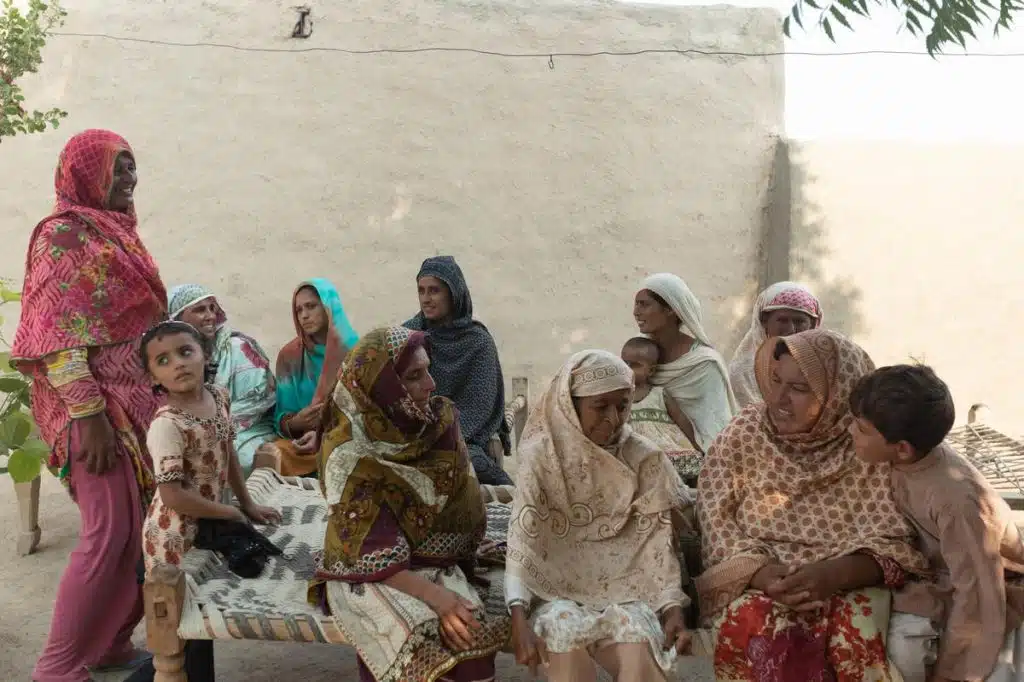
By Alan McClay, CEO, Better Cotton.


This article was first published by Reuters on 27 October 2022.
Starting with the bad news: the battle for female equality appears to be going backwards. For the first time in years, more women are leaving the workplace than joining, more girls are seeing their schooling derailed, and more unpaid care work is being placed on the shoulders of mothers.
So, at least, reads the conclusion of the United Nations’ latest progress report on its flagship Sustainable Development Goals. COVID-19 is partly to blame, as are the economic ramifications of the ongoing war in Ukraine.
But the reasons for female equality’s sluggish pace are as structural as they are situational: discriminatory mores, prejudicial laws and institutional biases remain entrenched.
Before we give up on the United Nation’s collective goal of equality for all women and girls by 2030, let’s not forget the achievement of some notable successes in the past. The route forward invites us to learn from what has worked (and continues to work) previously – and avoid what has not.
Sima Sami Bahous, executive director of U.N. Women, put it clearly when reflecting on the U.N,’s less-than-positive verdict: “The good news is that we have solutions… It simply requires that we do (them).”
Some of these solutions are founded on universal principles. UNICEF’s recently revised Gender Action Plan captures most: think challenging harmful models of male identity, reinforcing positive norms, enabling female participation, raising the voice of women’s networks, not passing responsibility onto others, and so on.
Yet, equally, each country, each community, and each industry sector will have specific solutions of its own. In the international cotton industry, for instance, the majority of those working in the field are women. In the case of India and Pakistan, female participation is as high as 70%. Decision-making, in contrast, is predominantly a male domain. Faced with limited access to finance, women all too frequently occupy the sector’s lowest-skilled and lowest-paid jobs.
The good news is this situation can be – and is being – changed. Better Cotton is a sustainability initiative that reaches 2.9 million farmers who produce 20% of the world’s cotton crop. We operate a three-tiered strategy based on interventions with a proven track record at progressing equality for women.
Step one, as always, starts within our own organisation and our immediate partners, since women (and men) need to witness an organisation’s rhetoric reflected back at them.
Our own governance has some way to go, and the Better Cotton Council has identified the need for greater female representation on this strategic and decision-making body. We’re developing plans to address this as a commitment to greater diversity. Within the Better Cotton team, however, the gender make-up skews heavily towards women 60:40, women to men. And looking beyond our own four walls, we strongly encourage the local partner organisations that we work with to ensure at least 25% of their field staff are women by 2030 recognising that these training roles have been predominately occupied by men.
Making our own immediate working environment more women-focused, in turn, supports the next tier of our strategy: namely, encouraging equality for all those involved in cotton production.
A critical step here is to ensure that we have as clear a picture as possible of the role of women in cotton farming. Previously, we counted only the “participating farmer” when calculating our reach. Expanding this definition since 2020 to all those who make decisions or have a financial stake in cotton production brought to light the centrality of female participation.
Equality for all also involves investing in the skills and resources available to cotton-producing communities. Over time, we have learned the critical importance of gender-sensitisation training and workshops in ensuring that our programmes fully address the needs and concerns of women cotton farmers.
An example is a collaboration that we are involved in with CARE Pakistan and CARE UK to look at how we can make our programmes more inclusive. One notable outcome is our adoption of new visual aids that help male and female participants to recognise inequalities in the home as well as on the farm.
Such discussions inevitably flag the structural issues that prevent greater female empowerment and equality. Culturally sensitive and politically charged as these issues can be, the abiding lesson from all successful gender mainstreaming in the past is that we ignore them at our peril.
We don’t pretend this is easy; the causative factors underpinning the inequality of women are deeply embedded in social and cultural norms. In some instances, as is well understood, they are written into legal coda. Nor do we claim to have got the problem cracked. Yet, our starting point is always to acknowledge the structural causes of female marginalisation and to take them seriously in all our programmes and interactions.
The U.N.’s recent assessment provides a stark reminder not only of how far there is still to go, but also how easy it is to lose the gains women have achieved to date. To reiterate, failure to achieve equality for women means consigning half the population to a second-tier, second-rate future.
Extending the lens more widely, women are integral to the delivery of the U.N. Sustainable Development Goals’ vision of “peace and prosperity for people and the planet”. While only one of the initiative’s 17 goals is explicitly directed at women (SDG 5), none of the remainder can be achieved without meaningful female empowerment.
The world needs women to be empowered. We all want a better world. Given the chance, we can seize both and more. That’s the good news. So, let’s reverse this backward trend, which is undoing years of positive work. We’ve not a minute to lose.







































